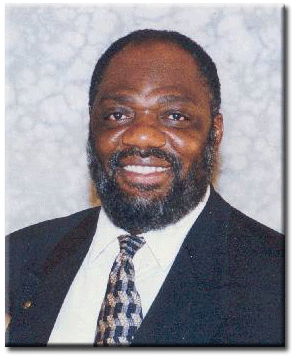
Process and Outcome for Peace in Liberia
By Mohamedu F. Jones, Esq
The Perspective
Atlanta, Georgia

Process and Outcome for Peace in Liberia
By Mohamedu F. Jones, Esq
The Perspective
Atlanta, Georgia
 |
|
Cllr. Mohamedu F. Jones
|
A review of media reports about Liberia leads to the conclusion that President Taylor and LURD are "entrapped" in the war. LURD has invested in war to "free Liberia of the tyrant Taylor." President Taylor has invested in war to "defend constitutional government from terrorists." Both sides now have such high "sunk" or "irretrievable" costs" in their war investments that they see exit routes out of the situation as virtually closed. Retreat from the current course would "make them shame," cause them to lose face, and call into question the very course of action that they have taken. This is why the violence in the country continues and expands even when it is apparent that the courses of action they are taking are self-defeating. Although experienced military and security analysts have concluded that neither the forces of the Liberian president nor those of LURD can overpower the other, they fight on.
For the parties to the ongoing civil war in Liberia, the stake is political power and the privileges of political power. Accordingly, they tend to view the risks of peacemaking from the worst possible scenarios, making negotiated peace almost too high for them. Media reports indicate that LURD is a loose militia with ambiguous organizational structure and weakly developed interests and capacities beyond the gun. President Taylor is considered perhaps the most failed leader of current Africa, and may see "winning" the civil war as his last clear chance to show that he has been a "successful leader."
In many ongoing conflicts in the world, the underlying grievances over which civil wars are fought are ideological, ethnic or religious. For Liberia, while the civil war has some ethnic undertones, the underlying grievance appears to be ambition for political power. This has created a situation of clashing, unyielding claims and inflexible positions. Observers of Liberia's civil war also report multiple transborder linkages and webs that impact the civil war in Liberia and negatively affect neighboring countries in significant ways. In addition, the Liberian civil war has been reported to be lucrative for many of the parties involved. Moreover, there is a certain level of "passion" indicated in the Liberian civil war that goes beyond the spoken "rationale," which is difficult to overcome
One major obstacle to ending civil war in Liberia is the absence of effective mediation by third parties with resources to undertake extensive and active mediation and intervention. Current mediation in Liberia's civil war is basically weak and there are no external guarantees of good faith on the part of the players. This has made a viable peace process extremely difficult. There is the still-strong bias in the international system against interference in country's "internal affairs." There are actually no standard international mechanisms to enforce peace in civil wars, and Liberia has been no exception.
A basic formula or broad principles for war termination in Liberia needs to be laid out. The formula would define the parameters of the conflict's outcome, lay out the process for talks to unfold, cover all the major issues, incorporate all sides' demands, contain a basic vision of post conflict arrangements, and be seen as just and satisfactory. Principles for peace in Liberia might include the following:
Ceasefire in place
A cease-fire would immediately end the violence in the country. It must then be followed by an explicit disavowal of the use of violence, even if initially conditional on the arrival of an international security force.
International security force
An international security force would overcome the security dilemma faced by the parties, and enforce security in the country. The force should be structured to assume a "coercive peacemaking" posture where the security situation demands. All Liberian government military, security, paramilitary, as well as LURD forces, would "stand down" for demobilization upon the deployment of the international force.
Disarmament
Demobilize and disarm all armed groups in Liberia.
Train and institute new Liberian security forces
Training and putting in place new Liberian security institutions are an integral part of the peace process and would be completed prior to elections.
United Nations conducted elections
The United Nations would conduct the elections in Liberia from start to finish. Its Electoral Assistance Division would be appointed Liberia's "elections commission."
The formula outline above seeks to lay out carefully linked process and outcome options into a carefully considered strategy that reinforces process with the most appropriate outcomes. The strategic idea that informs these principles is that it offers opportunities for peace in Liberia and a chance for the people to go to elections without "fear." Moreover, it offers a formula for providing an opportunity for the people to get rid of the "tyrant," which is the proclaimed objective of LURD, while preserving constitutional rule in Liberia, which is the declared objective of President Taylor.
